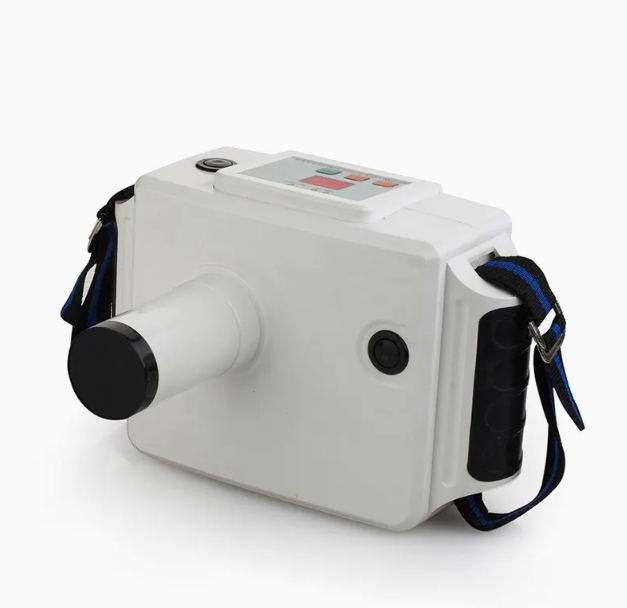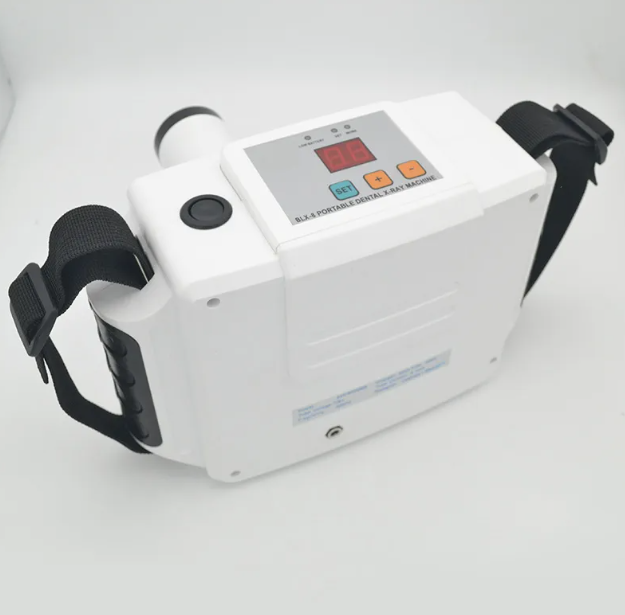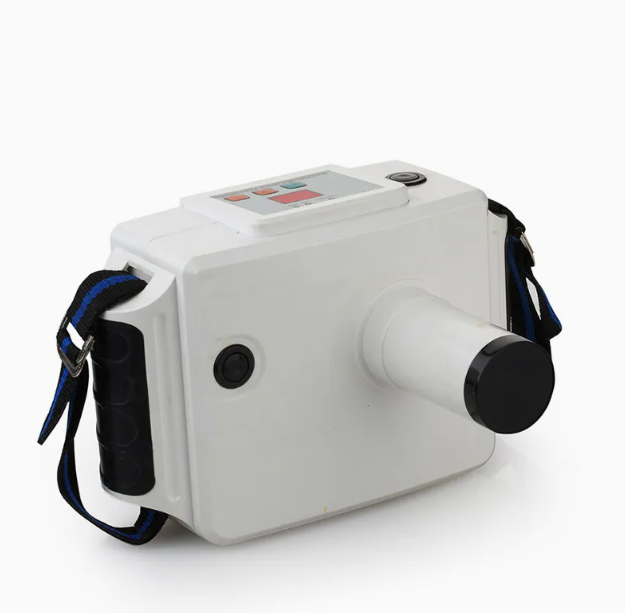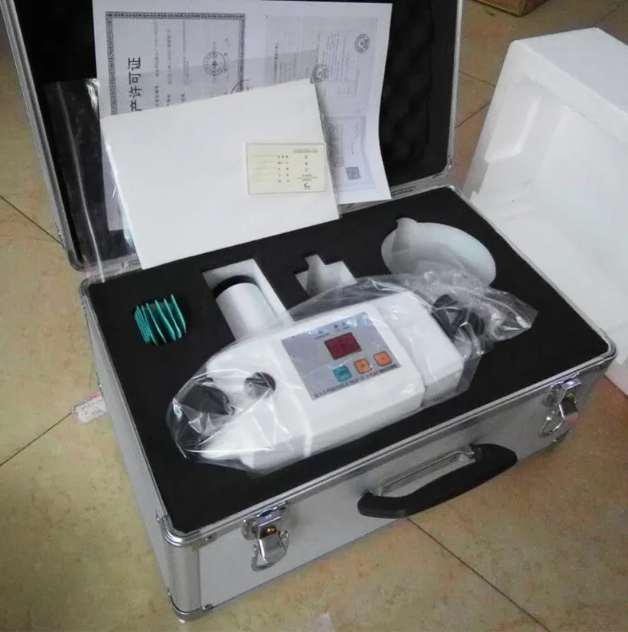Handheld Portable Dental X-ray Machine
A Handheld Portable Dental X-ray Machine is a compact, mobile imaging device specifically designed to produce high-quality X-ray images of a patient's teeth and surrounding oral structures. Unlike traditional, larger stationary X-ray machines, handheld versions are small, lightweight, and battery-powered, making them ideal for use in various settings, including dental clinics, mobile dental units, and emergency care. These machines use advanced digital sensors to produce instant, high-resolution images, enabling faster diagnostics and treatment planning.


Key Features:
Portability:
The most prominent feature is its portability. It is lightweight and easy to carry, making it convenient for dentists to move it between different rooms or even to different locations.
Wireless Operation:
Many portable dental X-ray machines feature wireless capabilities, allowing them to be operated without physical cables connecting to a computer, which further enhances flexibility.
Rechargeable Battery:
They typically come with rechargeable lithium-ion batteries, ensuring that the machine is ready for use when needed without reliance on a fixed power supply.
Adjustable Exposure Settings:
The exposure time, voltage, and current settings can be adjusted to suit various types of dental imaging, such as bitewing or panoramic X-rays.
Compact Design:
These units are smaller and lighter than traditional X-ray machines, making them easy to maneuver around patients' mouths and adjust for different angles.
Digital Imaging:
Many handheld X-ray machines are integrated with digital sensors, providing immediate feedback with high-resolution images and reducing the need for film development.
Safety Features:
Modern machines have built-in safety features, such as lead shielding, to reduce radiation exposure to both the patient and the operator.
Durability:
These machines are built to withstand daily use in a dental environment, with rugged casings designed to handle knocks and drops.


Applications:
Routine Dental Checkups:
Handheld dental X-ray machines are commonly used for routine checkups to detect cavities, infections, and other dental conditions.
Emergency Care:
In emergency situations, such as trauma cases or when patients cannot visit a dental clinic, portable X-rays can be used on-site for quick diagnostics.
Mobile Dentistry:
Dentists who offer mobile dental services to homebound patients or those in remote areas can use handheld X-ray machines to provide on-the-spot imaging.
Dental Clinics:
In regular dental practices, they are useful for taking images in tight spaces where traditional X-ray machines may be impractical.


Why Choose a Handheld Portable Dental X-ray Machine?
Convenience and Flexibility:
The main advantage is the ability to perform dental X-rays in almost any setting, offering convenience for both the practitioner and the patient. This is particularly beneficial in mobile dentistry, emergency care, and for patients with mobility issues.
Time Efficiency:
The device's portability and wireless features allow faster imaging and diagnosis, reducing the time spent setting up and waiting for results.
Cost-Effective:
Handheld dental X-ray machines can be a more affordable option for small dental practices or clinics that do not have the space or budget for traditional X-ray machines.
Enhanced Patient Comfort:
Because they are more compact, handheld X-rays are easier to position, reducing discomfort and radiation exposure for patients.
Reduced Space Requirement:
Traditional X-ray machines often require dedicated space and installation, while portable units can be used in smaller spaces or carried around, saving valuable room in a dental office.
Quick Results:
Integrated digital sensors provide immediate results, allowing for quicker diagnoses and treatment planning.
Safety:
With modern safety features, such as lower radiation exposure and lead shielding, handheld devices offer a safer option for both operators and patients compared to traditional machines.
Durability:
These devices are often designed to be more robust, making them suitable for travel, rough handling, and long-term use.


